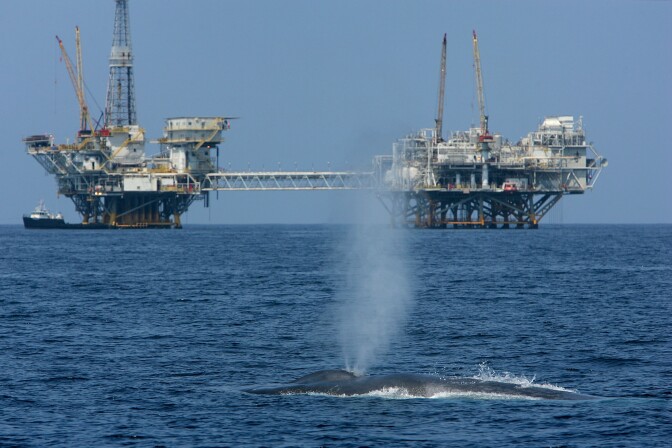This story is free to read because readers choose to support LAist. If you find value in independent local reporting, make a donation to power our newsroom today.
This archival content was originally written for and published on KPCC.org. Keep in mind that links and images may no longer work — and references may be outdated.
Gov. Brown calls Trump official to say: No drilling off CA

Gov. Jerry Brown urged U.S. Secretary of Interior Ryan Zinke to spare California’s coastline from offshore drilling in a phone call on Friday. The two men spoke a week after the federal agency decided to open the Pacific coast to drilling for the first time in more than 30 years.
Many other coastal states were included in Secretary Ryan Zinke’s offshore drilling plan, including Florida. But on Tuesday, Zinke announced he was removing Florida to protect the state’s coast and tourism industry. Zinke made the exemption at the urging of Florida's Republican governor, Rick Scott.
In a statement posted on Twitter, Zinke said he was sparing Florida because “local voice matters” and because its coasts are “heavily reliant on tourism as an economic driver.” The statement prompted outrage from California Atty. Gen. Xavier Becerra, who questioned how California was any different. “If that’s your standard, we, too, should be removed from your list. Immediately.”
On Friday, Gov. Brown spoke with Secretary Zinke for 20 minutes and urged him to treat California the same as Florida.
According to a spokesman, Brown told Zinke his proposal to allow federal leases for offshore drilling directly contradicts California’s commitment to fight climate change. And it goes against the wishes of nearly 70 percent of Californians who oppose offshore drilling.
Drilling has been formally banned in California’s state waters, those three miles from shore, since 1994, and no new leases have been offered since the 1969 Santa Barbara oil spill. The last lease auction for federal waters was in 1984.
Gov. Brown’s phone call was one of many that Secretary Zinke reportedly has had with governors of other coastal states since his decision to remove Florida from the drilling plan. The Department of Interior did not respond to a request for comment on whether Zinke will change his mind.
The drilling plan is open for public comment until March 9, and there will be a public meeting in Sacramento on February 8.







